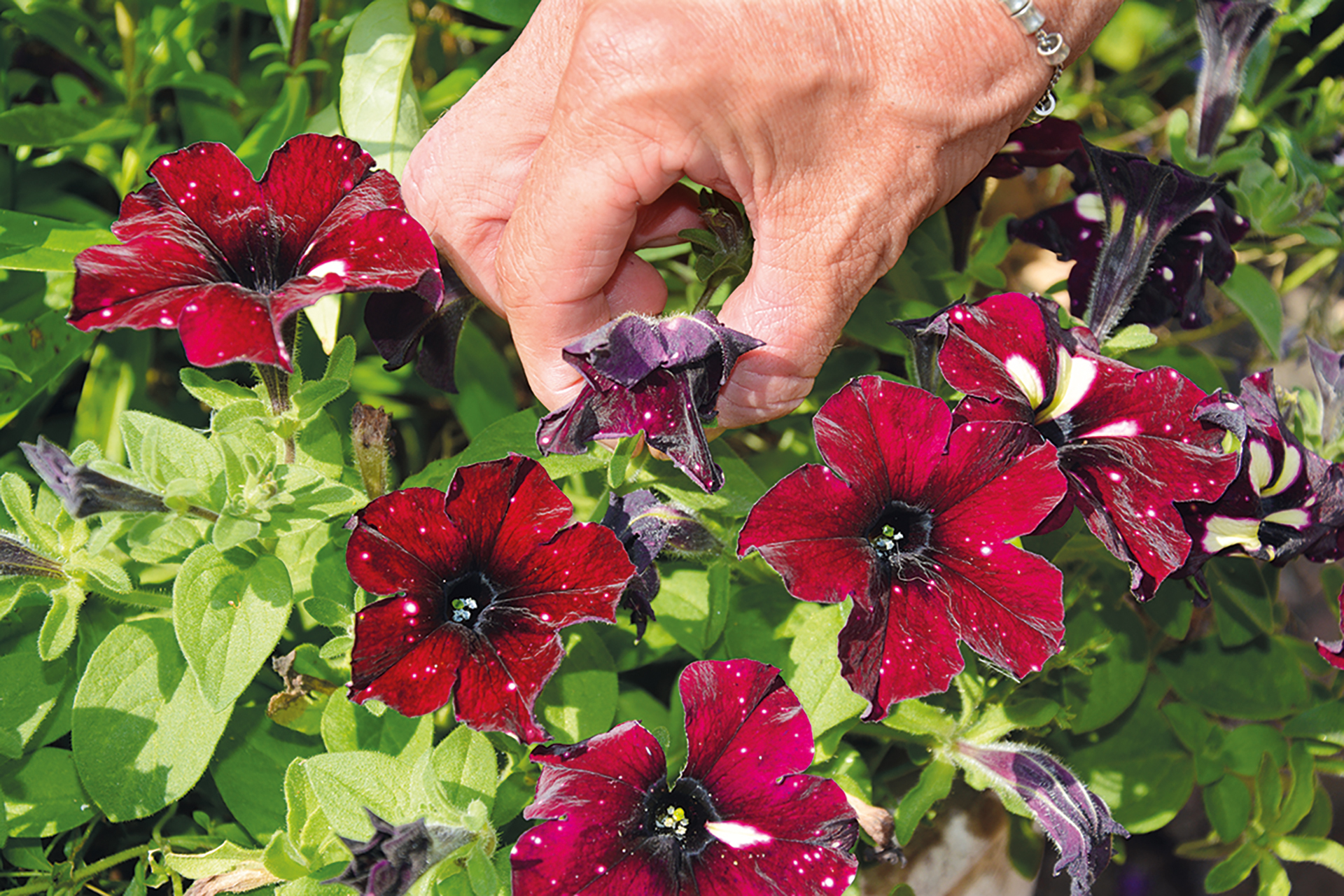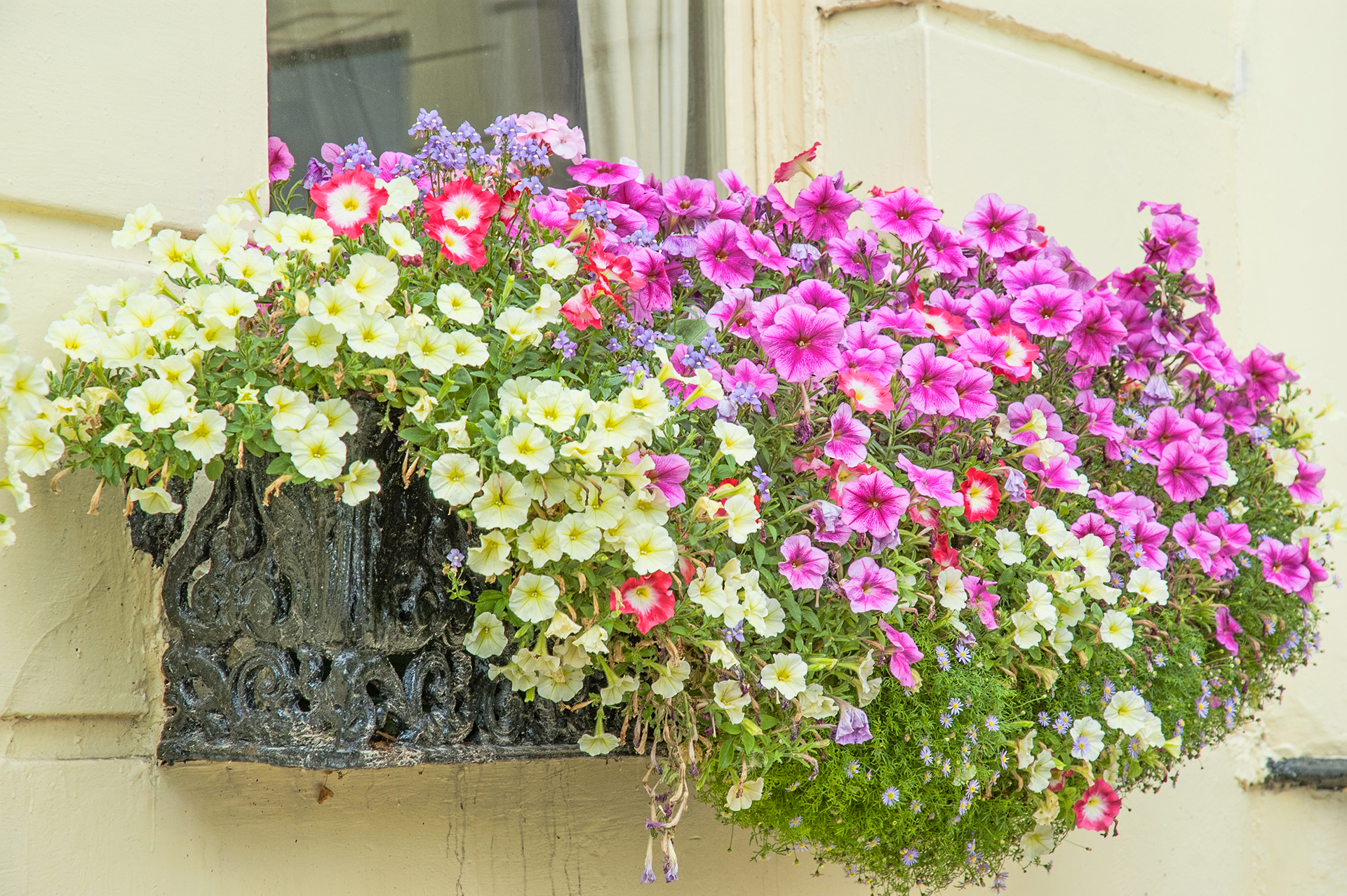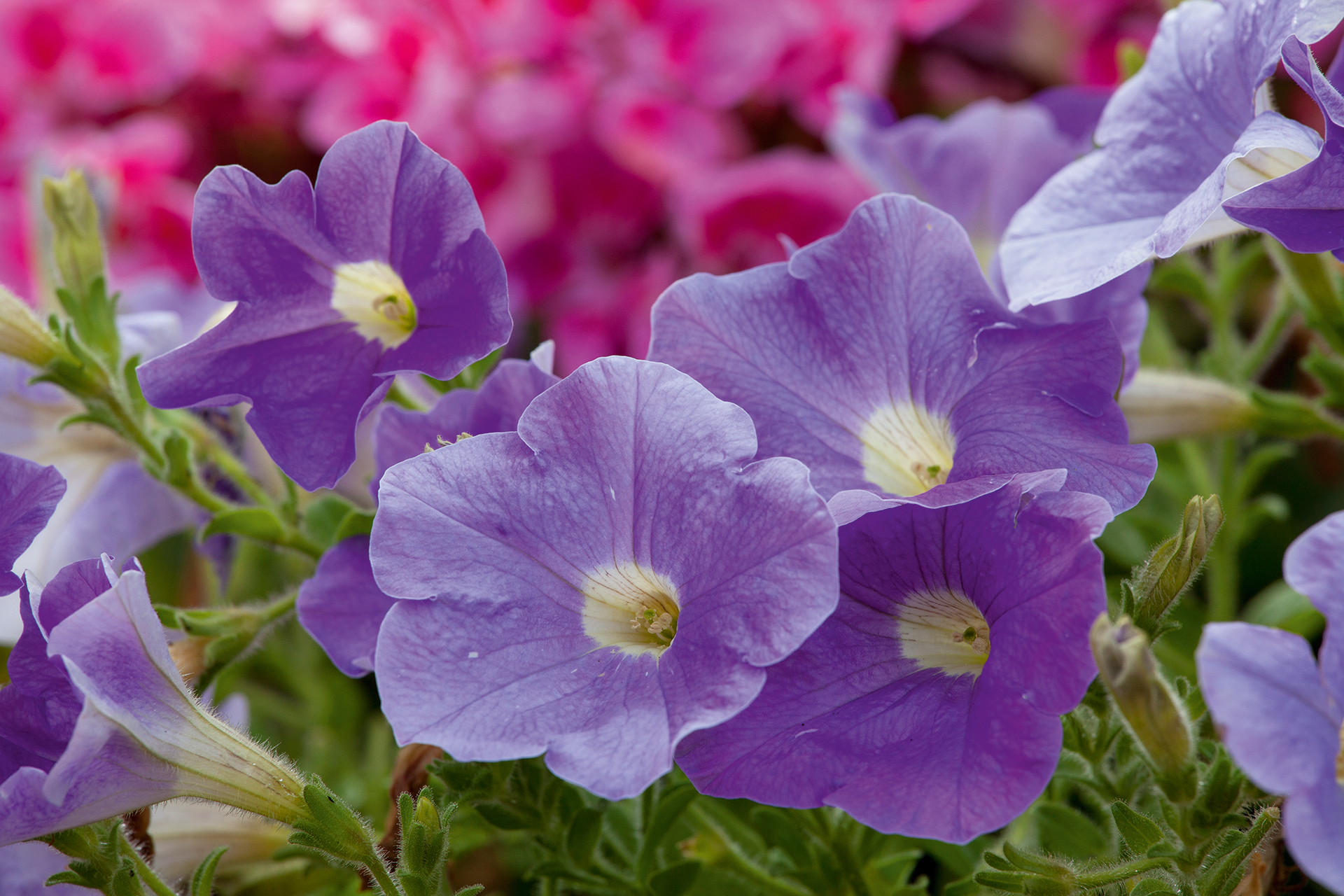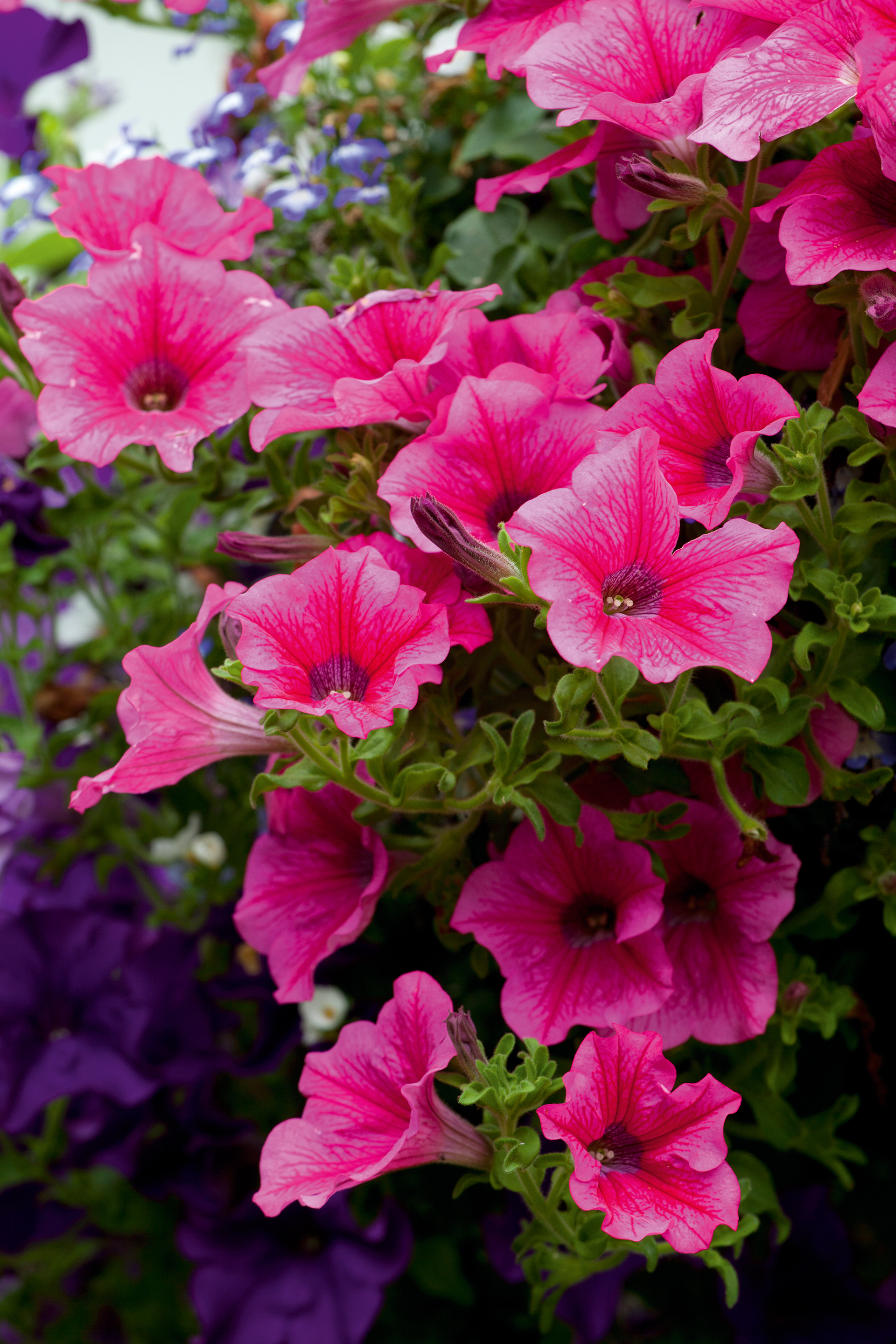How to deadhead petunias – and how often – to increase blooms
Get the most out of your summer blooms by learning how to deadhead petunias


Design expertise in your inbox – from inspiring decorating ideas and beautiful celebrity homes to practical gardening advice and shopping round-ups.
You are now subscribed
Your newsletter sign-up was successful
Want to add more newsletters?

Twice a week
Homes&Gardens
The ultimate interior design resource from the world's leading experts - discover inspiring decorating ideas, color scheming know-how, garden inspiration and shopping expertise.

Once a week
In The Loop from Next In Design
Members of the Next in Design Circle will receive In the Loop, our weekly email filled with trade news, names to know and spotlight moments. Together we’re building a brighter design future.

Twice a week
Cucina
Whether you’re passionate about hosting exquisite dinners, experimenting with culinary trends, or perfecting your kitchen's design with timeless elegance and innovative functionality, this newsletter is here to inspire
Learning how to deadhead petunias will encourage your plant to continue producing its beautiful flowers from early summer, right through until the first frost.
Deadheading is simply the process of removing dead blooms from a living plant in order to encourage it to produce more flowers rather than turning the spent flowers into seeds.
Petunias are a favorite for hanging baskets, windowboxes and pots, and are one of the joys of the summer garden. Abundantly colorful, available in every shade from white and yellow through to red and pink and blues and purples.

Petunias are the perfect flower for beginners as they're very easy to care for. 'All they require is full sun, regular feeding and deadheading. Allow them to dry out between waterings and avoid wetting the flowers or foliage,' advises PL's gardening expert Leigh Clapp.
As well as being a beautiful addition to the garden, petunias are also very useful. Petunias repel pests, particularly aphids, and also attract pollinators. For these reasons, they are particularly good companion plants for peppers.
How to deadhead petunias: a step-by-step guide
By knowing how to deadhead petunias, you can keep your plant blooming and looking beautiful throughout the summer. It will also prevent your petunia from self-seeding and growing more flowers in unwanted areas of your garden.
Deadheading petunias is fairly straightforward once you know the essentials.
Design expertise in your inbox – from inspiring decorating ideas and beautiful celebrity homes to practical gardening advice and shopping round-ups.
- Identify a dead petunia bloom. They will be limp and crumpled, some may even be brown and crispy depending on the weather and the amount of time long the flower has been left.
- Figure out where you pinch the petunias.The seed in the petunia is actually below the flower head, so you need to make sure you remove the seed as well as the petals. At the base of the flower is the sepal (it looks like little leaves) which previously encased the bud. You want to deadhead a little bit below these leaves.
- Having chosen your spot, there are two ways to remove the flower. Either use your thumb nail and forefinger to sever the stem cleanly or use secateurs, scissors or deadheading snips. Regardless of your method it should then fall away.
- Do not pull the head as this risks uprooting the plant and damaging other buds which will reduce the amount of flowers it produces and could even kill the plant.

One of the main challenges of deadheading petunias, however, is their stickiness. 'One reason why petunias don't last longer in our gardens is because they're horrible to deadhead,' says Sue Sanderson from Thompson & Morgan. However, there are some varieties, such as Thompson & Morgan's 'Petunia 'Non-Stick Mixed' which has clean, mess-free flowers that make deadheading much more pleasant.'
If you are growing traditional petunias then there are some solutions that make the challenge easier. 'I find using scissors or secateurs, rather than pinching the flower by hand, and wearing gloves stops the sticky sap from getting everywhere and makes deadheading a lot more manageable,' advises keen grower and Period Living editor Melanie Griffiths.
When should you deadhead petunias?
You should deadhead petunias as soon as the blooms start to fade. It will become quite clear when the bloom is past it's best as its color will be less vibrant and it will start to go slightly limp.
Blooms that are older will turn brown and eventually fall off – even if the flower head fallen off, you still need to dead the remaining bud as this will turn into a seed and reduce the amount of flowers produced by the plant.
Check your plant at least once a week for signs of fading petunia blooms. This will start as soon as your plant starts flowering.
Is it necessary to deadhead petunias?
Yes, it is necessary to deadhead most types of petunias. No-one likes looking out onto a garden of dead blooms, so knowing how to deadhead petunias and remove them is an easy way to keep your garden looking verdant and beautiful. Plus, by removing the dead flowers, the plant doesn't put its energy into creating seeds and instead promotes the growth of new flowers so your displays will continue to look stunning all summer long.
However, wave petunias and the slightly more durable supertunias do not require deadheading. 'Wave Petunias continue to bloom aggressively even without deadheading; however, we do recommend removing wilted blooms to improve the plant's appearance,' says Kristin Winterbottom from Park Seeds.

How do you prune petunias to keep them blooming?
To prune petunias to keep them blooming, simply pinch or cut off spent flowers. Be careful not to cut any foliage or buds. Plus, knowing how to deadhead petunias properly, by removing a petunia flower completely, as described above, you remove the seed as well as the bloom, this will prevent the petunias from getting leggy.

FAQs
How often should you deadhead petunias
You should deadhead petunias every time you notice a flower has died off; during flowering season, this might be every day.
Deadheading petunias is a great way to keep the display you have in your garden looking fresh, and can encourage new blooms; it's worth the maintenance.

Having graduated with a first class degree in English Literature, Holly started her career as a features writer and sub-editor at Period Living magazine, Homes & Gardens' sister title. Working on Period Living brought with it insight into the complexities of owning and caring for period homes, from interior decorating through to choosing the right windows and the challenges of extending. This has led to a passion for traditional interiors, particularly the country-look. Writing for the Homes & Gardens website as a content editor, alongside regular features for Period Living and Country Homes & Interiors magazines, has enabled her to broaden her writing to incorporate her interests in gardening, wildlife and nature.